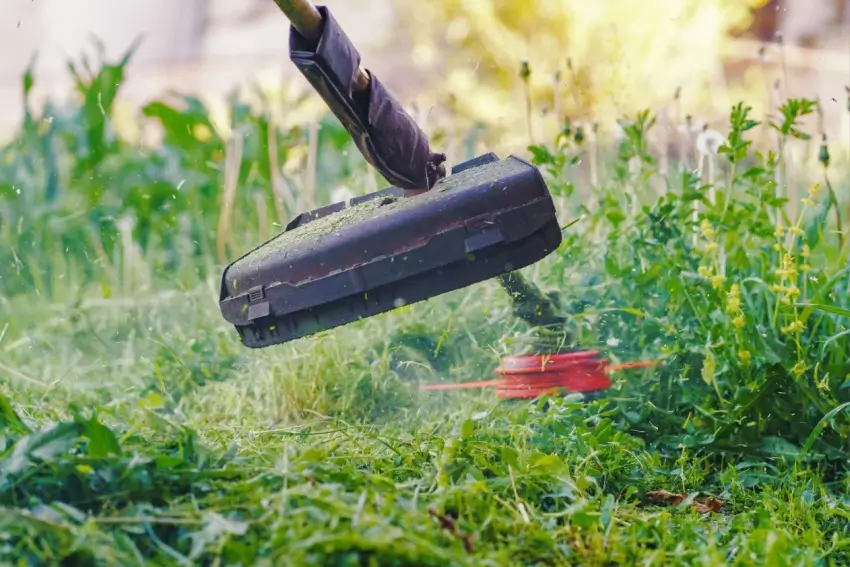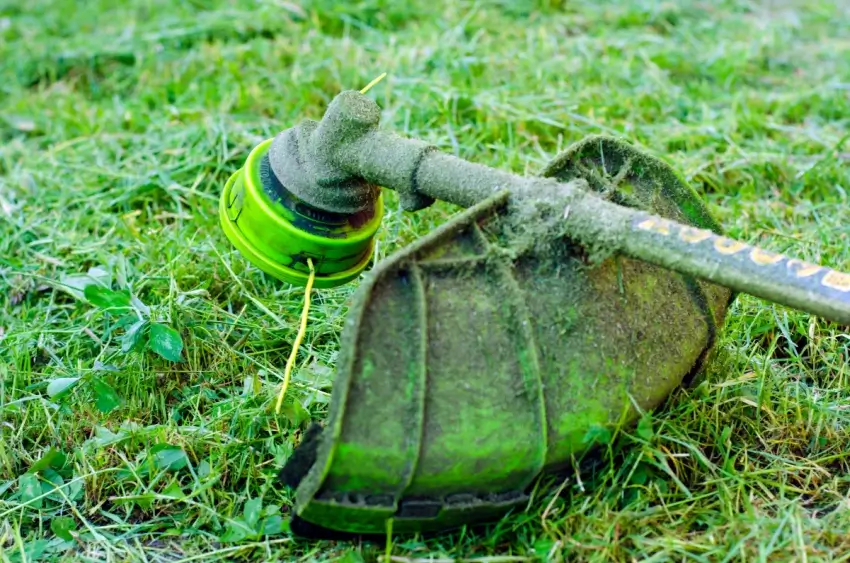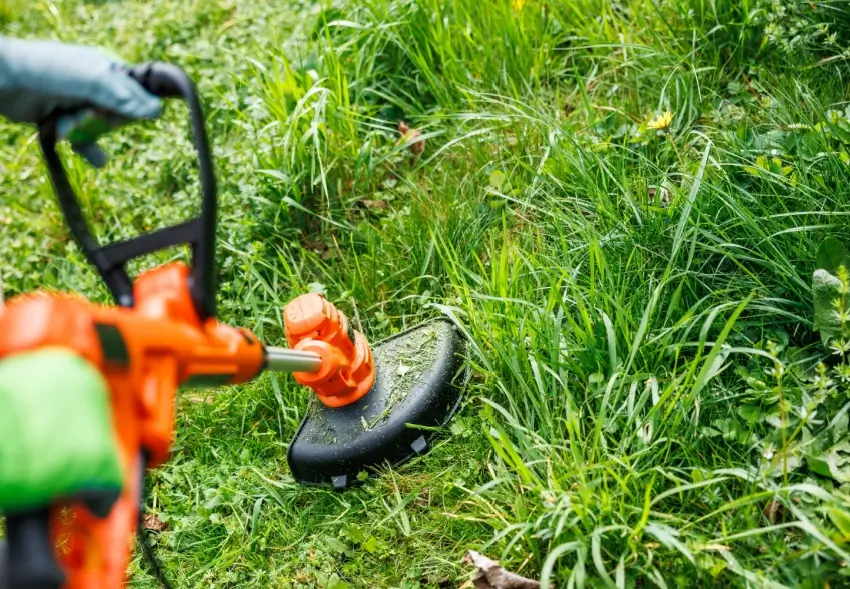Electric vs. Gas Weed Eater: Comprehensive Guide

Every lawn has unique features, like trees, boulders on the land, or tight areas next to the house. While these qualities can help your lawn stand out, they can also make mowing difficult. Enter the weed eater, also called string trimmers or weed whackers.
They are ideal for trimming grass and other vegetation in the places your mower can’t go, such as along fence lines, around obstacles, and in tight spaces. If you’re considering buying a weed eater, you’ll need to make a choice: electric vs. gas weed eater. Which type is right for you?
Table of Contents:
Understanding the Basics
When it comes to gas vs. electric weed eaters, it’s helpful to start with what they have in common. Both types use a rapidly spinning monofilament line in the head of the trimmer to cut through vegetation.
Gas trimmers have been around for a long time. Powerful and reliable, they run on a mix of gasoline and oil. Newer to the party are electric weed eaters, which can use either an electric cord or cordless batteries to power the tool. Over the past decades, advancements in battery technology and motor efficiency have made electric weed eaters more long-lasting.
Pros and Cons of Gas Weed Eaters

Performance and Power
Gas weed eaters typically offer more power than their electric counterparts, making them better suited for tackling thick, tough vegetation and larger lawns. If you have dense weeds and shrubs to cut through, a gas-powered trimmer can get the job done.
Mobility and Versatility
With a gas weed eater, you won’t be limited by the length of an electrical cable. Instead, you can use it across your entire property, even far from your home, without being tethered to a power source.
Runtime and Durability
Even though electric batteries have come a long way, they still have a limited power supply, meaning you could run out of juice halfway through the job. You won’t have to worry when using a gas weed eater. When you run dry, just top off your trimmer with more gas and keep going.
Gas weed whackers also tend to be built with more durable components, which means they can last longer than electric varieties with proper maintenance.
Drawbacks
Gas-powered trimmers are LOUD, which can make them uncomfortable to use without hearing protection. They can also disturb the tranquility of the neighbourhood, which means you should consider the time of day when you use it (avoid early morning use).
These types of weed eaters also need more care and maintenance than their electric counterparts. Be prepared to perform regular oil changes, air filter replacements, and spark plug checks.
Next, gas trimmers produce exhaust emissions, which can contribute to air pollution. Finally, gas weed eaters typically have a higher upfront cost compared to electric models, and the ongoing expense of fuel and maintenance adds up over time.
Pros and Cons of Electric Weed Eaters

Eco-Friendly and Quiet
Electric trimmers produce no exhaust emissions and are more environmentally friendly than gas-powered models. They also don’t include combustion engines, making them significantly quieter, which makes them well-suited for use in residential areas.
Lightweight and Easy to Use
Using a gas weed eater means carrying around the weight of the gasoline and oil along with the tool. This can add 3 to 5 kilograms to the weight of the trimmer. Electric trimmers, which only include a battery or a cord, are lighter. A lightweight trimmer is easier to maneuver and less fatiguing to use for extended periods.
Maintenance and Costs
An electric weed whacker could be the right call for those who prefer low-maintenance tools. Since this type of trimmer doesn’t include a combustion engine, you won’t have to worry about changing the oil or replacing air filters or spark plugs. Additionally, electric weed eaters often cost less than gas models, and the ongoing operational costs are also lower since you won’t have to keep buying fuel.
Drawbacks
While electric weed eaters continue to grow in popularity, a few downsides are worth considering. The primary disadvantage of using an electric trimmer is the limited battery life. It can take a while for a battery to charge back up, which can be frustrating if you want to finish your trimming in one session. One way to address this is to purchase multiple batteries, which adds to the overall cost. Alternatively, weed eaters with cords can limit your mobility and the distance you can travel from your power source.
Also, electric trimmers simply aren’t as powerful as gas models. If you need to cut through weeds or thick shrubbery, a gas weed eater might be a better choice.
Key Factors to Consider When Choosing a Gas or Battery Weed Eater
Electric vs gas weed eater: what’s it going to be? It’ll depend on your specific circumstances and preferences:
- Lawn size: Homeowners with larger lawns may benefit from the power and mobility offered by gas weed eaters.
- Vegetation type: If your lawn has thick, tough vegetation or dense weeds, a gas weed eater’s extra power may be necessary.
- Noise tolerance: An electric weed eater may be a better fit if you have nearby neighbours or prefer a quieter lawn maintenance experience.
- Environmental impact: Eco-conscious homeowners may opt for an electric weed eater to minimize their carbon footprint.
- Budget: Homeowners on a budget or who prefer a lower ongoing expense can usually save more by opting for an electric trimmer.
- User comfort: Electric models are generally lighter and produce less vibration, which may be important for those with physical limitations or who want to use their weed eater for extended periods.
Need Help With Your Lawn?
Whether you choose a gas vs electric weed eater, keeping your lawn healthy and looking its best requires regular maintenance. If you need help, contact The Grounds Guys®. We offer a wide range of weed removal, lawn care and landscape services. So, instead of buying a gas or battery weed eater, hire us to take care of all of your lawn care needs.
Our local teams are highly experienced lawn care experts and all their work is backed by Neighbourly Done Right Promise™ to ensure your satisfaction.
If you need help with any aspect of lawn care, request a free estimate today!
 Click to call
Click to call


